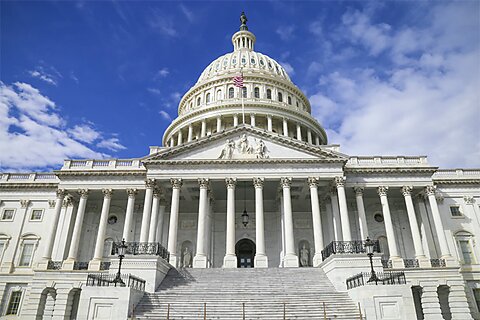David Boaz
New exercises of federal spending power are often justified on the basis of some emergency. Both the Hoover and Roosevelt administrations cited high unemployment and poverty in the Depression as justification for new transfer payments, such as farm subsidies and AFDC (“welfare”). When the emergency ended, the programs continued.
As economists would predict, any government payment program will create its own constituency. Program recipients will not willingly give up their source of income just because the emergency has ended. We’re now dealing with the latest example, the possible sunsetting of pandemic relief payments.
In March 2020, as government started to respond to the spread of the novel coronavirus, multi‐trillion‐dollar relief programs were quickly passed into law. Now some of those programs — and their recipients — are facing statutory deadlines. Which makes sense because the programs were justified on the grounds of keeping firms in business and employees supported. But the COVID-19 emergency has now ended, the economy is strong, and unemployment is low.
As usual, journalists are rushing to cover the plight of people who may lose their emergency benefits. A Washington Post article is headlined, “The incredible American retreat on government aid.” Note first that there is no retreat from the level of government transfer payments that existed in 2019. The concern is simply with new emergency programs dating from 2020 or later. The Post uses urgent language to bemoan
the expiration of a wave of federal programs passed in response to the pandemic to make life easier for millions of Americans.
Millions — possibly tens of millions — are losing Medicaid coverage, the result of the end of a covid‐era program that gave federal aid to states that kept people continuously enrolled rather than carry out regular purges of the rolls.
Billions in covid‐era federal funding to keep child‐care centers open expire at the end of September, leaving states to scramble in the face of estimates 70,000 facilities could close and 3.2 million children (mostly five years old or younger) could lose their care.
That would have enormous ripple effects across the economy, forcing some proportion of parents out of their jobs to care for their children.
The article goes on to mourn the expirations of such other emergency programs as expansion of the Women, Infants, and Children food aid, student loan repayment suspensions, eviction moratoriums, and enhanced unemployment benefits.
Now it’s easy to find individuals who have benefited financially from these programs. But emergency payments, like any other government spending, have detrimental effects as well, and those are not considered in the Post article.
Federal spending skyrocketed in 2020 and beyond, and money diverted to federal purposes is money that is not available to private businesses and individuals, money that doesn’t contribute to job creation and economic growth. It did, however, contribute to the highest levels of inflation since the 1970s.
At Cato, we knew the risk that emergency programs would become permanent. As Ronald Reagan said in his famous 1964 speech, “No government ever voluntarily reduces itself in size. So, governments’ programs, once launched, never disappear. Actually, a government bureau is the nearest thing to eternal life we’ll ever see on this earth.”
In March 2020 Cato president Peter Goettler wrote in a letter to lawmakers, “Extraordinary measures must end with the passing of the crisis, and sunset clauses included in all emergency legislation.”
And staff writer Andy Craig wrote, “And perhaps most importantly: emergency rules and powers should extend only for the duration of the emergency, and be repealed at the earliest feasible opportunity. We should be wary of the ratchet effect, where governments tend to retain powers and keep open programs long after their original justification has disappeared.”
But it’s very difficult to get policymakers to make a binding commitment that temporary emergency programs will genuinely end when circumstances change.
That’s why the federal subsidy to wool and mohair producers, created in 1954 to increase domestic production of military uniforms, is still in effect decades after the Pentagon’s interest in the program ended. The difference is, that program is a budgetary rounding error compared to the trillion‐dollar pandemic programs.
In the next perceived crisis, Congress will again move to demonstrate its concern by voting for massive spending programs. I hope that our current experience will remind future legislators to be far more cautious about creating “temporary,” “emergency” spending commitments.

